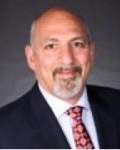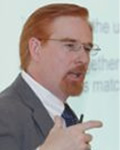Brett Tanzer
Partner Group Program Manager
Microsoft Azure

Brett Tanzer attended Boston University and has been working at Microsoft since 1993. Over that time Tanzer has worked on a range of projects ranging from Microsoft Office to Microsoft365 to Azure. All of these projects had a focus on large scale cloud services and applications.
HPCwire: Microsoft Azure has made big investments in HPC in the last 12 months, prominently with the acquisition of Cycle computing and a partnership with Cray, what is behind this push?
Brett Tanzer: Customers continue to tell us they want to harness the power of the cloud without friction. Both the acquisition of Cycle Computing, and the partnership with Cray to bring Cray supercomputers into the public cloud, are aimed to help customers do just that. Customers looking to move existing workloads to the cloud, or start fresh, will have a much easier time, and be able to take advantage of attached services in the cloud to augment traditional HPC capabilities, and begin the path towards modernization.
HPCwire: What are the current market and technology dynamics shaping HPC use in the cloud. Why “Specialized Compute”?
Customers, especially those working on the mission critical/breakthrough discovery types of applications we typically associate with HPC, are finding true benefits using the cloud in terms of access to the latest and greatest technologies with shorter lead times, the ability to take advantage of elastic consumption models, and the ability to augment existing simulations and workflows with Artificial Intelligence, Machine Learning, and advanced visualization capabilities. The cloud is providing access to these capabilities to a much broader range of developers and researchers enabling breakthrough discovery at an accelerated pace.
HPCwire: Is exascale computing part of the HPC cloud conversation? In what way?
Exascale computing is definitely part of the HPC cloud conversation, These technologies will likely serve as the NorthStar for future cloud HPC architectures. At the same time, cloud can help exascale sites by running the workloads that don’t require these capabilities, flexibly and cost-effectively, keeping these exascale supercomputers focused on the work that needs them most. As both cloud and infrastructure providers continue to evolve the capabilities of our cloud offerings in this direction, the community of HPC researchers, scientists, and analysts will be amongst the first to adopt them in the pursuit of breakthrough innovation.
HPCwire: What do you hope to see from the HPC community in the coming year?
I hope to see the community embrace the cloud with even greater vigor, and this be the year that many of the software licensing issues keeping solutions out of the public cloud begin to get addressed.
HPCwire: Outside of the professional sphere, what can you tell us about yourself – personal life, family, background, hobbies, etc.? Is there anything about you your colleagues might be surprised to learn?
I am a husband of 20 years and a father of three teenagers that occupy the majority of my social time. Folks might be surprised to learn that my introduction to HPC at Microsoft was a project we created at Microsoft to accelerate and enhance the accuracy of local weather prediction several years ago.














































